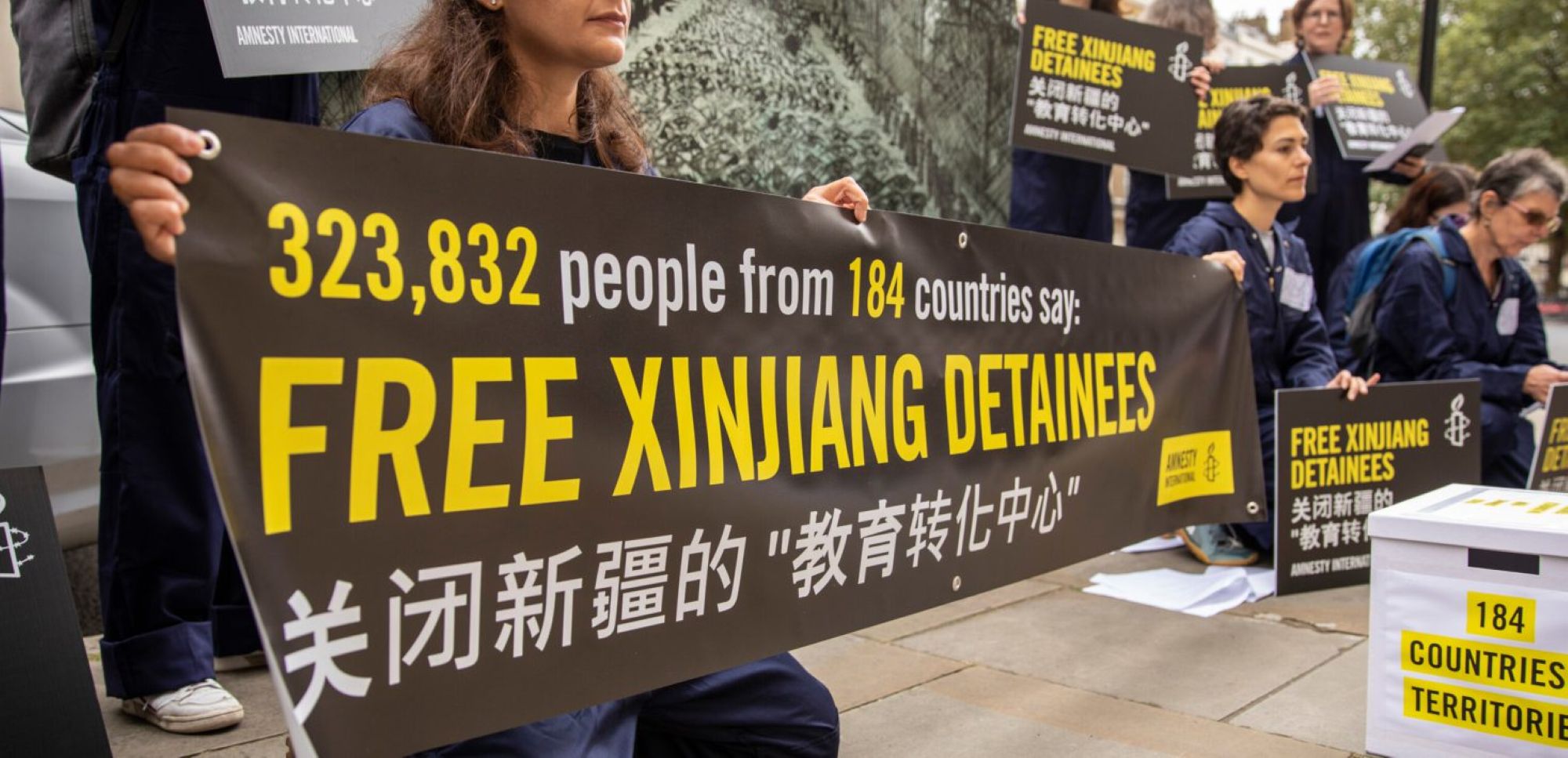Families of detainees in the Xinjiang Uyghur Autonomous Region have told Amnesty International of their continued suffering, three years after a major UN report said China was responsible for “serious human rights violations”.
- Recommendations from United Nations report ignored by China
- New testimony reveals Muslim ethnic minorities in Xinjiang still suffering repression
- “Families of detainees continue to seek truth, justice and freedom for all those suffering in the Uyghur region” – Sarah Brooks
On 31 August 2022, the UN Office of the High Commissioner for Human Rights (OHCHR) released a historic assessment concluding that serious human rights violations in the Uyghur region “may constitute international crimes, in particular crimes against humanity”. In a major report published in 2021, Amnesty International also found that China’s treatment of Muslim ethnic minorities in the Uyghur region amounted to crimes against humanity.
However, the international community and the UN has yet to act on these findings. The Chinese government also continues to intimidate and silence victims’ families, and maintain repressive laws and policies in the region.
“Three years after the UN report concluded that China was responsible for grave human rights violations in Xinjiang, it is shameful that the international community has failed to act,” said Sarah Brooks, Amnesty International’s China Director.
“Lives have been ruined, families separated and communities dismantled by the Chinese authorities’ continuing cruelty. Today, families of detainees continue to seek truth, justice and freedom for all those suffering in the Uyghur region.
“Another year of inaction has passed. The international community must honour the calls of survivors and act now to end repression in the Uyghur region.”
Amnesty International has long documented the crushing repression faced by Uyghurs, Kazakhs and other predominantly Muslim ethnic minorities in the Uyghur region. In 2021, Amnesty International’s global petition – signed by more than 323,000 people across 184 countries and territories – called for the release of the hundreds of thousands of Muslim minority men and women arbitrarily detained and subjected to mass internment, torture and persecution in the Uyghur region, and accountability for the abuses.
“Every day without action means more families are torn apart”
From January to August 2025, Amnesty International contacted families and sources for 126 individuals featured in the organization’s #FreeXinjiangDetainees campaign. Amnesty International received a range of responses which illustrate the ongoing violations and the continuing impact on family lives.
Patime*, who had a relative die in detention while another remains detained, said the hope that action would follow publication of the UN report has now disappeared: “The global attention that peaked around the report has faded, and China has faced little meaningful consequence. For Uyghurs, every day without action means more families are torn apart.
“I hoped the report would lead to real, concrete action – sanctions, political pressure and accountability for those committing these crimes. I thought that once the UN formally acknowledged the atrocities, governments would be compelled to act more decisively… Don’t let this become another forgotten report on a shelf.”
Regarding their relative still in prison, Patime added: “We have been completely cut off from him since June 2018. Not a single call, letter or message… This silence is not just painful; it has taken a heavy toll on our physical and mental health. Living with this uncertainty is its own form of torture.”
Mamatjan Juma, whose brother Ahmetjan is still in prison, said the lack of updates makes everyday life difficult: “It feels like living with a wound that never heals, because I don’t know if he’s safe, if he’s healthy, or even if he’s alive.
“We’ve lost birthdays, weddings, countless moments together. His son has grown up without his father’s presence, and we’ve all been forced to live with a constant absence that reshapes who we are.”
Other interviewees said they had limited contact with relatives, and described constant surveillance by the Chinese authorities. Murekkem Mahmud, who lives in Turkey, said communications with her parents were always monitored: “Family visits happen now, but always under surveillance – a way to deny the crimes and mislead the world… After 10 years apart, I just want to be with my family again… I want the uncertainty to end.”
Many family members called on the international community to act on the UN report’s recommendations, and increase pressure on China to free all those still arbitrarily detained in the Uyghur region. Nefise Oğuz, whose uncle Alim remains in prison, said: “Every day of delay is another day of suffering for innocent people… I want real, concrete action from the international community, not just words.”
Medine Nazimi, whose sister Mevlüde remains deprived of her liberty, told of her frustration at the lack of progress in the last three years. She told Amnesty International: “The international community – including governments, civil society and ordinary citizens – must stop treating China’s crimes as just an internal issue. What is happening to Uyghurs is not a domestic matter, it is a human rights crisis and a crime against humanity.
“Our goal is for the people who are suffering in China’s internment camps and prisons – those being tortured, deprived of their freedom – to see the light of day, reunite with their families, and escape those four walls as soon as possible.”
Recommendations
Amnesty International calls on the High Commissioner to provide a public update on the report, and once again urges UN member states to condemn China’s serious human rights violations in the Uyghur region and to reiterate the critical importance of establishing an independent, international investigative mechanism to ensure accountability.
Member states must also support effective access to justice and remedies, including reparations for victims and survivors, in particular those within their jurisdictions, and take appropriate measures to prevent further violations.
*Names have been changed





















